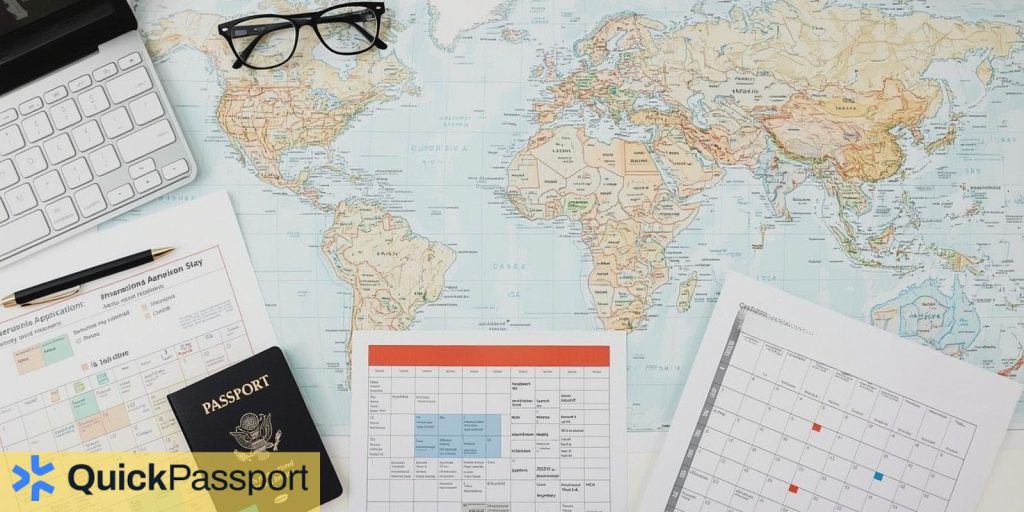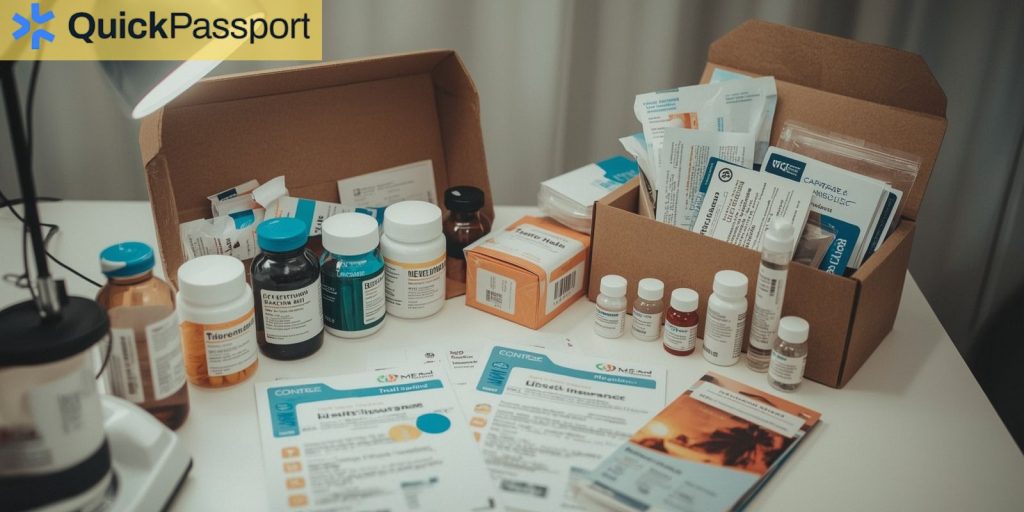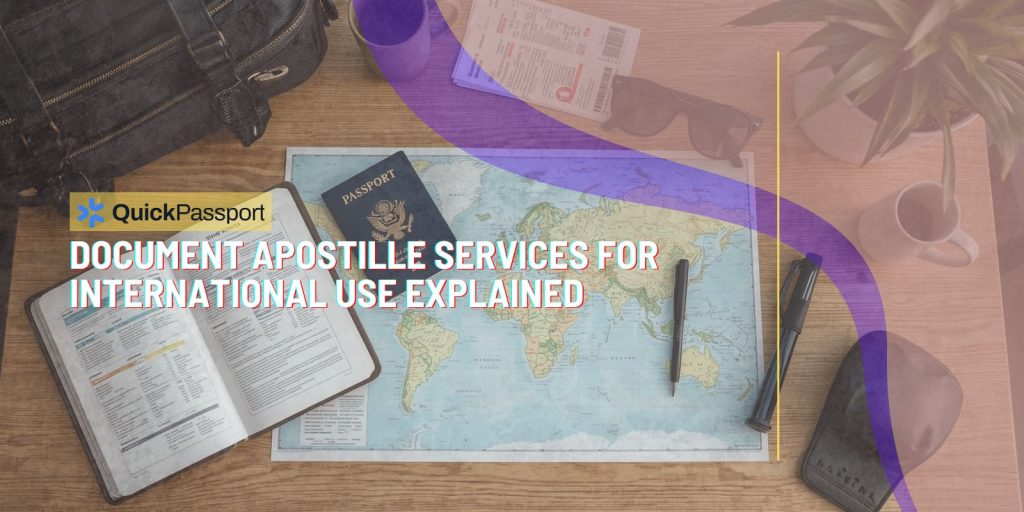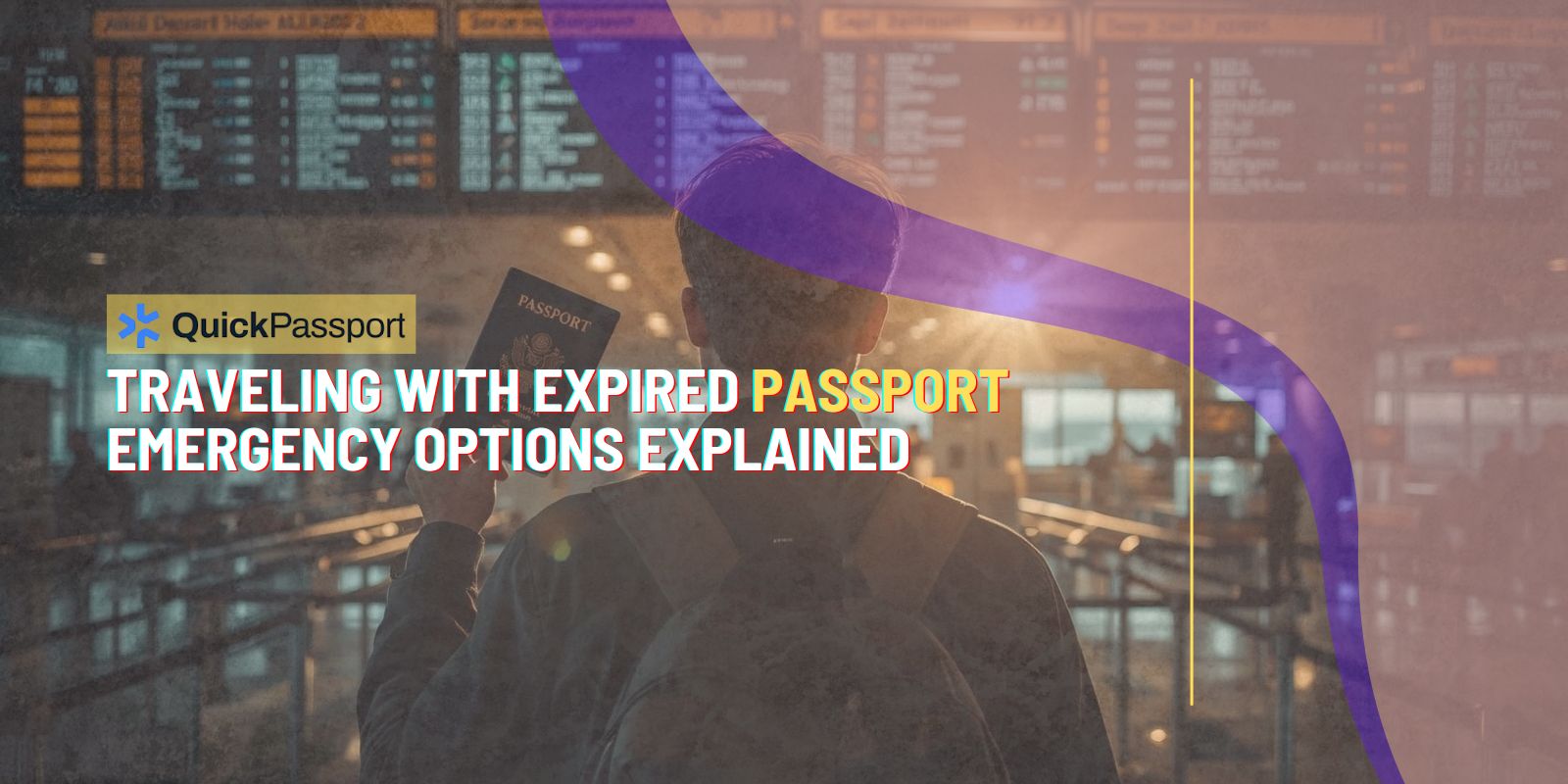International travel opens doors to incredible experiences, cultural discoveries, and unforgettable memories. However, the excitement of exploring new destinations can quickly turn into stress if you’re not properly prepared. A comprehensive international travel checklist before departure is your roadmap to a smooth, worry-free journey that begins long before you step foot in the airport.
The complexity of international travel has evolved significantly in recent years, with changing regulations, heightened security measures, and varying entry requirements across different countries. What once might have been a simple process of booking a flight and packing a bag now requires careful planning, documentation verification, and strategic preparation. This reality makes having a detailed international travel preparation checklist not just helpful, but absolutely essential for modern travelers.
Whether you’re embarking on your first international adventure or you’re a seasoned globetrotter, overlooking even seemingly minor details can result in significant complications. From visa requirements and passport validity to health documentation and financial preparations, each element of your travel checklist plays a crucial role in ensuring your journey proceeds without unexpected hurdles.
The consequences of inadequate preparation extend far beyond mere inconvenience. Travelers who fail to properly prepare may face denied boarding, entry refusal at their destination, unexpected expenses, or even safety risks in unfamiliar environments. These challenges can transform what should be an enriching experience into a costly and stressful ordeal that could have been easily prevented with proper planning.
This comprehensive guide will walk you through every essential component of international travel preparation, providing you with the knowledge and tools necessary to approach your upcoming journey with confidence. From the fundamental documentation requirements to the often-overlooked details that can make or break your travel experience, we’ll cover everything you need to know to create your personalized international travel checklist before departure.
Key Takeaways
- Documentation is paramount: Ensure your passport is valid for at least six months beyond your planned return date, and research visa requirements well in advance of your departure. Many countries have specific entry requirements that can take weeks or months to fulfill.
- Health and safety preparation saves lives: Research required vaccinations, obtain necessary health certificates, and ensure you have adequate travel insurance coverage. Some destinations require specific immunizations that must be administered weeks before travel.
- Financial planning prevents complications: Notify your bank of travel plans, understand currency exchange rates, and ensure you have multiple payment methods available. Consider the financial implications of emergency situations and plan accordingly.
- Technology and communication setup: Verify your phone’s international capabilities, download essential travel apps, and ensure you have backup methods for staying connected. Research internet availability and communication options at your destination.
- Accommodation and transportation verification: Confirm all reservations, understand local transportation options, and have backup plans in place. Print physical copies of important confirmations as digital access may be limited.
- Cultural and legal awareness: Research local customs, laws, and cultural norms to ensure respectful and legal behavior throughout your journey. Understanding these aspects can prevent misunderstandings and legal issues.
- Emergency preparedness: Establish emergency contacts, understand embassy locations and services, and create contingency plans for various scenarios. Preparation for unexpected situations can be lifesaving.
Overview of International Travel Preparation
International travel preparation encompasses a multifaceted approach that extends far beyond simply booking flights and accommodations. The modern international travel landscape requires travelers to navigate an increasingly complex web of requirements, regulations, and considerations that vary significantly from one destination to another. Understanding this complexity is the first step toward developing an effective international travel preparation checklist that addresses all potential challenges and opportunities.

The foundation of successful international travel lies in thorough research and early preparation. Unlike domestic travel, international journeys involve crossing borders, adapting to different legal systems, navigating foreign currencies, and potentially encountering language barriers. Each of these elements requires specific preparation strategies that should begin weeks or even months before your departure date.
Timing plays a crucial role in international travel preparation. Many requirements, such as visa applications, vaccination schedules, and passport renewals, have specific timeframes that cannot be rushed. Understanding these timelines and planning accordingly can mean the difference between a seamless journey and a cancelled trip. Additionally, early preparation often provides cost savings opportunities and greater flexibility in making arrangements.
The interconnected nature of travel preparations means that delays or issues in one area can cascade into multiple problems. For example, a delayed passport renewal might prevent timely visa application submission, which could ultimately force trip postponement. This interconnectedness underscores the importance of a systematic approach to travel preparation that addresses all requirements in their proper sequence and timeline.
Essential Documentation and Legal Requirements
The cornerstone of any international travel checklist before departure centers on ensuring all necessary documentation is current, valid, and readily accessible. Your passport serves as your primary identification and proof of citizenship when traveling internationally, making its validity and condition absolutely critical to your travel success. Most countries require passports to be valid for at least six months beyond your planned departure date, though some nations have even more stringent requirements.
Passport renewal or first-time application processes can take several weeks to several months, depending on current processing volumes and whether expedited service is requested. It’s essential to check your passport’s expiration date immediately when planning international travel, as last-minute renewals often involve expensive expedited processing fees and may still not guarantee timely completion. Additionally, ensure your passport has sufficient blank pages for entry and exit stamps, as some countries require multiple blank pages for visas and official markings.
Visa requirements vary dramatically between countries and depend on factors including your nationality, the purpose of your visit, the duration of your stay, and sometimes even your travel history. Some destinations offer visa-free entry for certain nationalities, while others require complex application processes that include interviews, financial documentation, and proof of onward travel. Research visa requirements as early as possible in your planning process, as some applications can take months to process and may require supporting documentation that takes time to obtain.
Beyond passports and visas, many destinations require additional documentation such as proof of vaccination, negative COVID-19 test results, travel insurance certificates, or evidence of sufficient financial resources. Some countries also require proof of onward travel, such as return flight tickets or documentation showing your intention to leave the country within the permitted timeframe. Failing to have any required documentation can result in denied boarding or entry refusal upon arrival.
Consider making multiple copies of all important documents and storing them separately from the originals. Digital copies stored in cloud-based services can provide additional backup options if physical documents are lost or stolen. When working with services like QuickPassport – Arlington, ensure you understand all documentation requirements and processing timelines well in advance of your travel dates to avoid any last-minute complications that could jeopardize your trip.
Health and Safety Preparations
Health and safety preparations form a critical component of your international travel preparation checklist, as medical requirements and health risks vary significantly across different destinations. Many countries mandate specific vaccinations for entry, while others strongly recommend certain immunizations based on local disease prevalence and seasonal health risks. The timing of vaccinations is particularly important, as some vaccines require multiple doses administered over several weeks or months to achieve full effectiveness.

Consult with a travel medicine specialist or your healthcare provider at least 4-6 weeks before departure to discuss destination-specific health recommendations. Common travel vaccinations include hepatitis A and B, typhoid, yellow fever, Japanese encephalitis, and meningitis, depending on your destination and planned activities. Some vaccines, such as yellow fever, require official certification that must be presented upon entry to certain countries, making proper documentation as important as the vaccination itself.
Travel insurance represents one of the most important yet often overlooked aspects of international travel preparation. Comprehensive travel insurance should cover medical emergencies, medical evacuation, trip cancellation or interruption, lost luggage, and other potential travel-related losses. Medical evacuation coverage is particularly crucial, as emergency medical transportation from remote locations can cost hundreds of thousands of dollars without proper insurance coverage.
Research the healthcare system and medical facilities available at your destination, particularly if you have existing medical conditions or take prescription medications. Ensure you have sufficient medication supplies for your entire trip plus extra in case of delays, and carry prescriptions in their original containers with clear labeling. Some medications that are legal in your home country may be restricted or illegal in other countries, so research medication regulations for your specific destination.
Safety considerations extend beyond health to include understanding local crime patterns, political stability, natural disaster risks, and cultural safety norms. Register with your country’s embassy or consulate at your destination, and ensure family members know your travel itinerary and how to contact you in emergencies. Research local emergency numbers, hospital locations, and embassy contact information before departure.
Financial Planning and Currency Considerations
Financial preparation for international travel involves much more than simply bringing money for expenses. Currency considerations, banking logistics, and financial security measures require careful planning to ensure you have reliable access to funds throughout your journey while protecting yourself from financial fraud and unexpected costs. Understanding the financial landscape of your destination and preparing accordingly can prevent significant complications and expenses during your trip.
Currency exchange rates fluctuate constantly, and understanding these fluctuations can help you make informed decisions about when and how to exchange money. Research current exchange rates and historical trends to understand the purchasing power of your home currency at your destination. Consider exchanging a small amount of money before departure to cover immediate expenses upon arrival, such as transportation from the airport, tips, or small purchases before you can access local banking services.
Notify your bank and credit card companies of your travel plans well before departure to prevent fraud protection systems from blocking your cards when used in foreign locations. Provide specific dates and destinations for your travel, and inquire about international transaction fees, ATM fees, and daily withdrawal limits. Many banks offer travel-friendly credit cards with reduced international fees, and some provide temporary increases to daily limits for travelers.
Diversify your payment methods by bringing multiple credit cards from different networks (Visa, Mastercard, American Express), a debit card for ATM access, and some cash in both your home currency and your destination’s currency. ATMs are widely available in most international destinations and often provide better exchange rates than currency exchange services, but having backup payment methods ensures you’re never left without access to funds.
Budget for unexpected expenses such as visa fees, departure taxes, transportation delays, medical emergencies, or extended stays due to unforeseen circumstances. Research typical costs for meals, transportation, and activities at your destination to create realistic daily budgets. Consider the financial implications of different travel scenarios and ensure you have adequate resources to handle unexpected situations without compromising your safety or ability to return home.
Understand local tipping customs, preferred payment methods, and any restrictions on currency import or export. Some countries limit the amount of currency that can be brought in or taken out, while others require declaration of large amounts of cash or monetary instruments. Familiarize yourself with these regulations to avoid legal complications or confiscation of funds.
Technology and Communication Setup
Modern international travel relies heavily on technology for navigation, communication, translation, and access to important information. Preparing your devices and establishing communication plans before departure ensures you can stay connected, access essential services, and navigate unfamiliar environments with confidence. However, technology preparation involves more than simply bringing your phone and charger.

Verify your mobile phone’s international capabilities and understand roaming charges, data limits, and coverage areas for your destination. Contact your mobile service provider to discuss international plans, temporary add-ons, or recommendations for local SIM cards. Many providers offer temporary international packages that can be more cost-effective than standard roaming charges, but these plans often have specific activation requirements and usage limitations.
Download essential travel apps before departure, including offline maps, translation tools, currency converters, transportation apps specific to your destination, and emergency assistance applications. Offline capabilities are particularly important, as internet access may be limited or expensive in some locations. Test these applications before travel to ensure they function properly and that you understand how to use their key features.
Ensure all devices are fully charged before departure and bring appropriate charging equipment for your destination’s electrical outlets. Research voltage requirements and outlet types, and bring necessary adapters or converters. Consider bringing portable battery packs to maintain device power during long travel days or when outlet access is limited. Some countries have different voltage standards that can damage devices not designed for those specifications.
Back up important data from your devices before travel, and consider cloud storage options for important documents, photos, and contact information. This preparation ensures you can access critical information even if devices are lost, stolen, or damaged during travel. Additionally, research internet availability and costs at your destination, as some locations have limited connectivity or expensive internet access.
Establish communication plans with family and friends, including regular check-in schedules and emergency contact procedures. Share your travel itinerary, accommodation information, and local contact details with trusted individuals who can assist in emergencies. Consider time zone differences when planning communication schedules, and ensure multiple people have access to your travel information.
Professional Passport and Visa Services
Navigating the complexities of passport and visa requirements can be overwhelming, particularly for first-time international travelers or those visiting destinations with complex entry requirements. Professional passport and visa services like QuickPassport – Arlington provide expertise, efficiency, and peace of mind for travelers who want to ensure their documentation is handled correctly and processed as quickly as possible.
Professional services offer significant advantages in terms of processing speed, accuracy, and expertise in handling complex situations. These services maintain current knowledge of changing requirements across different countries, understand processing timelines, and can often expedite applications through established relationships with government agencies. For travelers with tight timelines or complex travel plans involving multiple destinations, professional services can be invaluable in ensuring all requirements are met efficiently.
QuickPassport – Arlington specializes in helping travelers navigate the passport and visa application process with expertise and personalized service. Their team understands the specific requirements for different types of travel, from business trips to leisure travel, and can guide clients through the entire process from initial consultation to document delivery. This expertise is particularly valuable for travelers who are unsure about requirements or who have unique circumstances that complicate standard application processes.
The value of professional services extends beyond simple application submission to include consultation on travel requirements, timeline planning, and problem resolution. Experienced professionals can identify potential issues before they become problems, recommend optimal application strategies, and provide guidance on related travel preparation aspects. This comprehensive approach helps ensure that passport and visa applications are just one part of a well-coordinated travel preparation strategy.
When choosing professional services, consider factors such as processing speed guarantees, customer service quality, pricing transparency, and the range of services offered. Look for providers who offer consultation services to help you understand your specific requirements and who can accommodate urgent processing needs if necessary. The investment in professional services often pays for itself through time savings, reduced stress, and the assurance that critical documentation will be handled correctly.
Professional services also provide valuable support for travelers who encounter unexpected issues or changes in their travel plans. Whether dealing with last-minute destination changes, urgent travel needs, or complications in the application process, experienced professionals can often find solutions that individual travelers might not be aware of or able to access on their own.
Frequently Asked Questions
How far in advance should I start preparing for international travel?
Begin preparation at least 2-3 months before departure, though some destinations may require longer lead times for visa processing or specific vaccinations. Passport renewals alone can take 6-8 weeks during busy periods, and some visas require several weeks or months to process.
What happens if my passport expires while I’m traveling internationally?
An expired passport can prevent you from boarding return flights or crossing borders. Most countries require passports to be valid for at least six months beyond your planned departure date. Contact your nearest embassy or consulate immediately if your passport expires while abroad.
Do I need travel insurance for international trips?
While not always legally required, travel insurance is highly recommended for international travel. It can cover medical emergencies, medical evacuation, trip cancellation, lost luggage, and other unexpected expenses that could cost thousands of dollars without coverage.
How do I know if I need a visa for my destination?
Visa requirements depend on your nationality, destination, purpose of visit, and length of stay. Check with the destination country’s embassy or consulate, or consult professional services like QuickPassport – Arlington for current requirements and application assistance.
What vaccinations might I need for international travel?
Required vaccinations vary by destination and may include hepatitis A/B, typhoid, yellow fever, Japanese encephalitis, or meningitis. Consult a travel medicine specialist 4-6 weeks before departure to discuss destination-specific recommendations and ensure adequate time for multi-dose vaccines.
Should I exchange money before traveling or wait until I arrive?
Exchange a small amount before departure for immediate expenses, but ATMs at your destination often provide better exchange rates. Notify your bank of travel plans and bring multiple payment methods including credit cards, debit cards, and some cash.
How can I stay connected while traveling internationally?
Options include international roaming plans, local SIM cards, or international Wi-Fi devices. Contact your mobile provider about international plans, and download offline apps for maps and translation before departure.
What should I do if I lose my passport while traveling abroad?
Contact your nearest embassy or consulate immediately to report the loss and apply for an emergency passport or travel document. Having copies of your passport and other identification documents can expedite the replacement process.
Conclusion
Creating and following a comprehensive international travel checklist before departure is essential for ensuring a safe, enjoyable, and stress-free travel experience. The complexity of modern international travel, with its varying requirements across different destinations, makes thorough preparation not just helpful but absolutely critical for travel success. From passport validity and visa requirements to health preparations and financial planning, each element of your checklist plays a vital role in your journey’s success.
The investment of time and effort in proper travel preparation pays dividends throughout your journey and long after your return. Travelers who take the time to thoroughly prepare experience fewer complications, lower stress levels, and greater confidence in handling unexpected situations that may arise during their travels. This preparation allows you to focus on enjoying your destination rather than worrying about logistics and documentation issues.
Remember that international travel preparation is not a one-size-fits-all process. Your specific requirements will depend on your destination, nationality, purpose of travel, and personal circumstances. Take the time to research your specific situation thoroughly, and don’t hesitate to seek professional assistance when needed. Services like QuickPassport – Arlington can provide valuable expertise and support to ensure your documentation is handled correctly and efficiently.
As you embark on your international travel adventure, carry this comprehensive international travel preparation checklist as your guide to thorough preparation. The effort you invest in preparation will reward you with smoother travels, greater peace of mind, and the freedom to fully enjoy the incredible experiences that international travel offers. Safe travels, and may your well-prepared journey create memories that last a lifetime.






